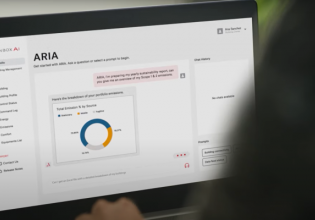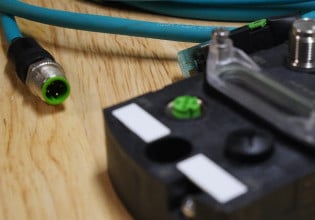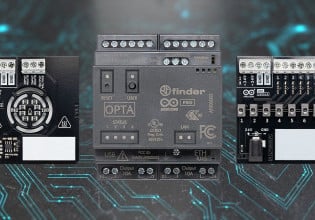Hi, I recently encountered a problem on MARK VIE, on the TCSA discrete input is triggered once every 3 minutes of the entire group. and Regardless of the status of true or false. Which causes the unit MS5002 to stop. after a reboot, power off, no operation occurs for a day, then the situation repeats every 3 minutes, the input changes status even if the cable is disconnected from the field.
Mark VIe board YSIL error with TSCA input
- Thread starter aleks
- Start date
Scroll to continue with content
What Diagnostic Alarms are being annunciated on the YSIL?
What are ALL the discrete inputs to the TSCA?
We would need a LOT more information to be able to help you with this problem. Mark* VIeS configurations can be very complicated, and even from the factory are sometimes not properly configured (or tested--in the factory by factory personnel or in the field by commissioning personnel). Sorry, but it's a fact that cannot be disputed; the Mark* VIeS is simply very, very complicated--and to make matters worse each application can be, and usually is, very unique. You mention a MS5002--a two-shaft GE-design Frame 5 heavy duty gas turbine. It almost certainly drives a centrifugal compressor of some sort (instead of a generator) and as such the configuration of the turbine and compressor control system can be extremely unique, and usually is.
Without being able to see the application code running in the Mark* VIe/VIeS we simply cannot provide too much in the way of meaningful help--unless you are prepared to answer a LOT of questions. While someone may have encountered a similar problem somewhere at some time it's not likely they are reading this forum and can provide a comprehensive answer that would be of immediate use to you.
It is strongly suggested you read the descriptions of the Diagnostic Alarms in the Mark* VIe and Mark* VIeS system guides (GEH-6721 and GEH-6723, respectively) and use them to help try to understand, troubleshoot and resolve the problem. We don't know which cable(s) you are referring to, either. So, either use the documentation available to you (it can ALMOST ALWAYS be found on any HMI is a documentation folder FILLED with GEH and other GE publications), and if that doesn't help then get a knowledgeable person to site to help with the problem.
What are ALL the discrete inputs to the TSCA?
We would need a LOT more information to be able to help you with this problem. Mark* VIeS configurations can be very complicated, and even from the factory are sometimes not properly configured (or tested--in the factory by factory personnel or in the field by commissioning personnel). Sorry, but it's a fact that cannot be disputed; the Mark* VIeS is simply very, very complicated--and to make matters worse each application can be, and usually is, very unique. You mention a MS5002--a two-shaft GE-design Frame 5 heavy duty gas turbine. It almost certainly drives a centrifugal compressor of some sort (instead of a generator) and as such the configuration of the turbine and compressor control system can be extremely unique, and usually is.
Without being able to see the application code running in the Mark* VIe/VIeS we simply cannot provide too much in the way of meaningful help--unless you are prepared to answer a LOT of questions. While someone may have encountered a similar problem somewhere at some time it's not likely they are reading this forum and can provide a comprehensive answer that would be of immediate use to you.
It is strongly suggested you read the descriptions of the Diagnostic Alarms in the Mark* VIe and Mark* VIeS system guides (GEH-6721 and GEH-6723, respectively) and use them to help try to understand, troubleshoot and resolve the problem. We don't know which cable(s) you are referring to, either. So, either use the documentation available to you (it can ALMOST ALWAYS be found on any HMI is a documentation folder FILLED with GEH and other GE publications), and if that doesn't help then get a knowledgeable person to site to help with the problem.
sorry, I wrote the post in general, invited BNGE representatives 2 people are present at the site (for a week), and yes the turbine rotates the compressor, they got acquainted with the documentation. YSIL board firmware 5.00.00.C according to BNGE recommendations updated to 5.06.01.C. Result 0. TSCA contacts are ESD signals from Yokogawa on their dry contact.
The wires are 20 meters long, mesh with panels 2 cables 2x1.5.x5, everything is grounded from the MARK BE side.
The presence of BNGE specialists, as practice shows, is not a guarantee of success and problem solving.
The wires are 20 meters long, mesh with panels 2 cables 2x1.5.x5, everything is grounded from the MARK BE side.
The presence of BNGE specialists, as practice shows, is not a guarantee of success and problem solving.
Most of us sympathize with your dilemma of support from a once prominent and distinguished multi-national corporation.
Anyway, several things to consider here: When did this problem start? How long has this system been in service before this particular problem started?
Have there been any problems with electrical storms or lightning strikes in the area?
Have there been any serious earthing system issues at the site recently?
The thing which the TSCA relies on is a stable and continuous power supply for proper operation. What you are describing sounds like some kind of possible power supply issue--a component heating up or being affected by capacitance which builds up over time and is causing some kind of issue. I say this because USUALLY GE equipment provides the power for the discrete input circuits such as ESD (Emergency ShutDown) inputs. It's entirely possible that something happened during the commissioning process to weaken or damage some component(s) on the TSCA, or over time, as the result of electrical storms/lightning strikes or serious earthing issues which may have affected some component(s) leading to this problem.
If these ESD inputs to the TSCA card use any kind of current-limiting devices or voltage limiting devices in the circuits it's not uncommon for these devices to weaken and fail over time. So, they should not be overlooked--and since this site is a gas compressor of some sort it's highly likely that these explosion prevention devices exist almost everywhere in the control and protection systems. And, from painful, personal experience I have encountered problems which were the result of construction wiring issues which damaged this equipment which was NOT replaced during commissioning and the equipment continued to degrade and fail over time, intermittently--which is the worst kind of problem to troubleshoot and resolve.
One last thing about Mark* VIe and -VIeS systems--they are designed to use two (2) earthing systems. They don't have to--but they are designed to accommodate and be used with two independent earthing systems. (They are call protective earthing (primarily to protect personnel against shocks) and functional earthing (designed to earth low-level control and protection circuits).) It's very common for construction workers, and even well-intentioned plant maintenance or electrical personnel, to incorrectly earth equipment to the wrong system (earth is earth, right???). It's VERY easy to connect control/protection earthing wires to the protective earthing system, which can, by design, experience some pretty serious problems and cause nuisance and intermittent issues. Earthing issues very often get overlooked, and they can be very difficult to find and troubleshoot, as well--but, they can also lead to some very costly shutdowns and lost production (revenue!).
This is about all I can offer at this time. If you haven't already replaced the TSCA, you might consider doing so. (I'm not a fan of "swapping" cards without knowing if the card is the problem, or if the new card will be weakened and damaged over time--but sometimes it's required to help get people to get motivated to find the root cause of the problem after repeated issues over time (meaning lost production (revenue!)). If a particular card keeps failing over time, it's not likely it's the card (unless it's been improperly chosen/used for the wrong application).
Don't overlook that the ESD outputs from the DCS could be the problem, as well.... Solid-state relays are not the most reliable devices and their failure mode can't always be predicted very accurately. And, they are also subject to damage from inadvertent wiring problems during construction/commissioning....
Best of luck! It would be great if you could let us know what you find--a LOT of people read these threads, not just now, but over time because Control.com has a good archive of past threads which can easily be searched and has some very good information. But the BEST information on Control.com is the feedback provided by original posters and others who have found the information provided to be helpful and useful--or not! as the case may be.
Best of luck!
Anyway, several things to consider here: When did this problem start? How long has this system been in service before this particular problem started?
Have there been any problems with electrical storms or lightning strikes in the area?
Have there been any serious earthing system issues at the site recently?
The thing which the TSCA relies on is a stable and continuous power supply for proper operation. What you are describing sounds like some kind of possible power supply issue--a component heating up or being affected by capacitance which builds up over time and is causing some kind of issue. I say this because USUALLY GE equipment provides the power for the discrete input circuits such as ESD (Emergency ShutDown) inputs. It's entirely possible that something happened during the commissioning process to weaken or damage some component(s) on the TSCA, or over time, as the result of electrical storms/lightning strikes or serious earthing issues which may have affected some component(s) leading to this problem.
If these ESD inputs to the TSCA card use any kind of current-limiting devices or voltage limiting devices in the circuits it's not uncommon for these devices to weaken and fail over time. So, they should not be overlooked--and since this site is a gas compressor of some sort it's highly likely that these explosion prevention devices exist almost everywhere in the control and protection systems. And, from painful, personal experience I have encountered problems which were the result of construction wiring issues which damaged this equipment which was NOT replaced during commissioning and the equipment continued to degrade and fail over time, intermittently--which is the worst kind of problem to troubleshoot and resolve.
One last thing about Mark* VIe and -VIeS systems--they are designed to use two (2) earthing systems. They don't have to--but they are designed to accommodate and be used with two independent earthing systems. (They are call protective earthing (primarily to protect personnel against shocks) and functional earthing (designed to earth low-level control and protection circuits).) It's very common for construction workers, and even well-intentioned plant maintenance or electrical personnel, to incorrectly earth equipment to the wrong system (earth is earth, right???). It's VERY easy to connect control/protection earthing wires to the protective earthing system, which can, by design, experience some pretty serious problems and cause nuisance and intermittent issues. Earthing issues very often get overlooked, and they can be very difficult to find and troubleshoot, as well--but, they can also lead to some very costly shutdowns and lost production (revenue!).
This is about all I can offer at this time. If you haven't already replaced the TSCA, you might consider doing so. (I'm not a fan of "swapping" cards without knowing if the card is the problem, or if the new card will be weakened and damaged over time--but sometimes it's required to help get people to get motivated to find the root cause of the problem after repeated issues over time (meaning lost production (revenue!)). If a particular card keeps failing over time, it's not likely it's the card (unless it's been improperly chosen/used for the wrong application).
Don't overlook that the ESD outputs from the DCS could be the problem, as well.... Solid-state relays are not the most reliable devices and their failure mode can't always be predicted very accurately. And, they are also subject to damage from inadvertent wiring problems during construction/commissioning....
Best of luck! It would be great if you could let us know what you find--a LOT of people read these threads, not just now, but over time because Control.com has a good archive of past threads which can easily be searched and has some very good information. But the BEST information on Control.com is the feedback provided by original posters and others who have found the information provided to be helpful and useful--or not! as the case may be.
Best of luck!






